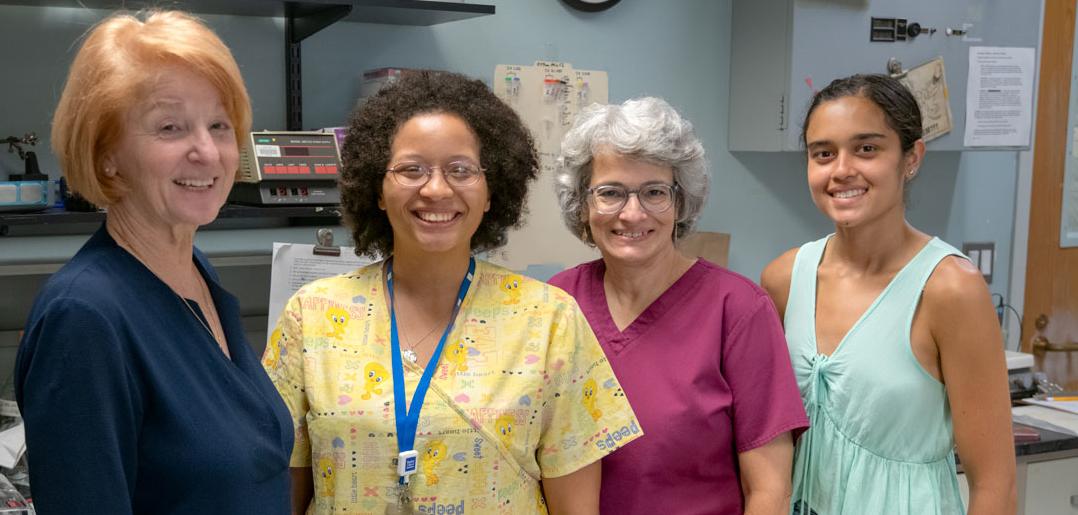
About The Lab
The Fiorotto Lab does translational research that seeks to advance our understanding of the interactions between nutrient metabolism -primarily protein and amino acids- and striated muscle growth and development, and how these are influenced by age, environment, and disease processes. The research focuses on two facets of understanding nutrient needs to ensure optimal growth:
Primary Investigator
Marta Fiorotto does translational research that seeks to advance our understanding of the interactions between nutrient metabolism -primarily protein and amino acids- and striated muscle growth and development.
- The amounts needed to support growth of optimal composition and function with emphasis on the skeletal musculature. The target of this work is the perinatal period when the tissue is growing at a rate that is more rapid than at any other time in life, whilst also undergoing functional maturation. Our goal is to understand the unique properties of the immature muscle that underlie the high efficiency with which it can use dietary amino acids for growth.
- The short and long-term consequences of inadequate protein and amino acid intake on growth and functional development of skeletal muscle and the heart.
We use animal models to advance our understanding of the various mechanisms that regulate muscle growth during maturation and how these are altered by the intake of protein and specific amino acids. This information is essential for understanding the presence of critical windows of development during which poor nutrition permanently reprograms muscle growth to a lower growth trajectory. This results in a lifetime deficit in muscle mass, altered metabolism, and compromised cardiac function with limited exercise capacity. The knowledge we gain from this research also can be usefully applied to evaluate the potential role of dietary protein and amino acids in the pathophysiology of muscle diseases. Our goal is to use the knowledge we generate to inform the development of strategies that will mitigate these detrimental long-term effects.
USDA/ARS Children's Nutrition Research Center

The Fiorotto Lab is part of the USDA/ARS Children's Nutrition Research Center which houses laboratories, state-of-the-art equipment, a greenhouse, observation labs, research volunteer accommodations, a metabolic kitchen, and an elite group of research scientists.
Other Content
I have the additional responsibility of serving as the director of the Mouse Metabolic Research Unit. As such, I oversee the functioning of the system, review the experimental needs of interested investigators and ensure that the system configuration and data collection are appropriate, as well as assist with data analysis and interpretation if necessary. The facility is available to all researchers in the Texas Medical Center, and available for collaborations outside TMC. The facilities are extensive and, in addition to the measurements of energy balance and its components, we have a separate food access control system that provides an automated means to control availability of food to the mouse. The system can be programmed to automatically deliver feed at different times, for different durations, and/or in specific amounts; automated pair-feeding is also available.
Please visit our web page for more extensive information.









